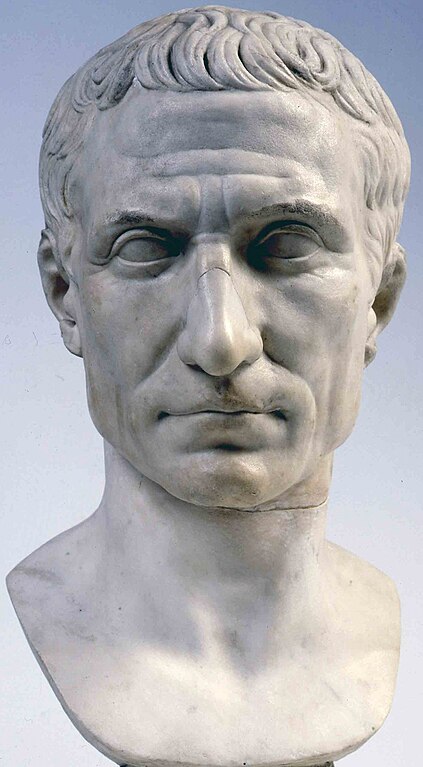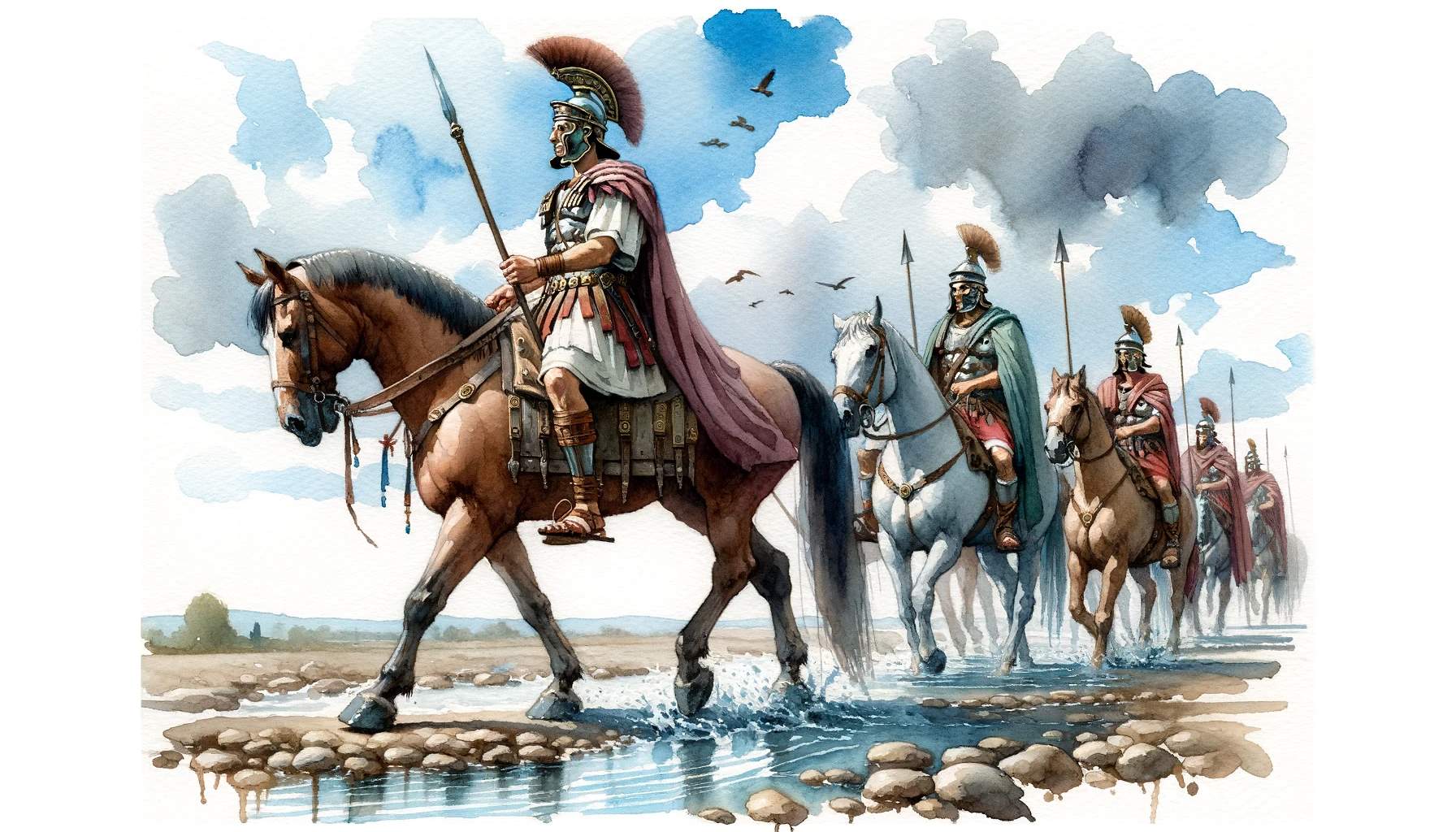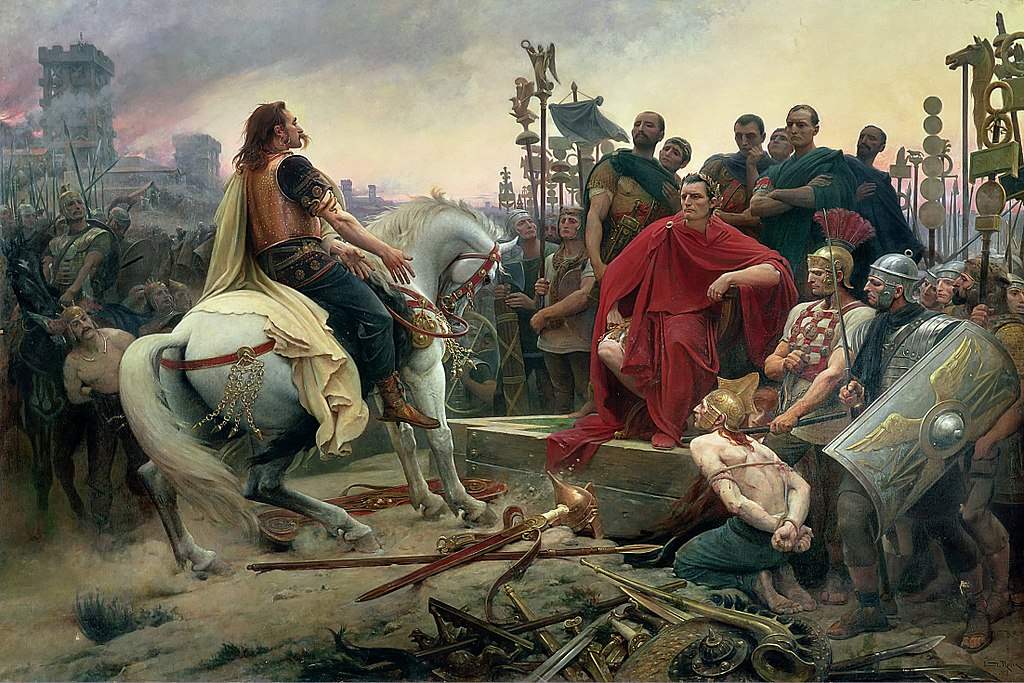The legacy of Julius Caesar straddles the gates of history with a complex duality, evoking deliberations on what truly constitutes effective leadership. Assessing Caesar’s role as a leader ignites a debate that transcends the simplicity of ‘good’ or ‘bad,’ delving into a deeper analysis of relative morality and leadership consequences. One might ponder, does being a ‘good’ leader to one’s people equate to benevolence towards the vanquished? Furthermore, the intricate tapestry of leadership raises the question of whether successful rulership is synonymous with being a ‘good’ human being.
These multifaceted considerations lay the groundwork for an in-depth exploration of Julius Caesar’s leadership, examining the impacts of his decisions on both the Roman populace and the broader spectrum of humanity in his era.
Caesar: A Champion for the Populace
Julius Caesar, a figure ensconced in the annals of history, was undeniably a military mastermind and a political savant, characteristics often attributed to effective leaders. His conquests expanded the Roman Empire to extents unprecedented, forging a realm of immense power and influence. To his people, especially the commoners, Caesar was a beacon of hope; he implemented reforms aimed at distributing land to the poor, restructured the heavily indebted Roman economy, and even reformed the calendar, which is a system still partially in use today.

The Shadow of Conquest: A Different Perspective
However, ‘good’ leadership, if measured by the welfare of one’s people, often casts a shadow on those subjugated through the process. Caesar’s campaigns, while celebrated in Rome, spelled doom for millions, marking his legacy with the blood of those he conquered. His expeditions in Gaul, present-day France, and Belgium, were particularly noted for their brutality, resulting in widespread slaughter and enslavement, which, from the perspective of the conquered, would cast Caesar not as a ‘good’ leader, but as a harbinger of destruction.
Leadership vs. Morality: The Caesar Dilemma
Additionally, the concept of a ‘good’ leader versus a ‘good’ person comes into play when discussing Caesar’s leadership style. His autocratic approach paved the way for the eventual transformation of the Roman Republic into the Roman Empire, an act that could be seen as detrimental to the democratic principles the Republic was built upon. Caesar’s accumulation of power was so immense that it alarmed the senators, culminating in his infamous assassination. While he pursued what might be considered the greater good for the majority, it was, in many ways, at the expense of political freedom and the existing republican values.

Conclusion: The Relativity of ‘Good’ Leadership
In conclusion, the dichotomy of Julius Caesar’s leadership is a testament to the complexity of historical evaluation. ‘Goodness’ in leadership, it appears, is a matter of perspective, heavily reliant on the position one holds in the leader’s sphere of influence and decisions. Caesar was, without doubt, a figure of immense acumen, charisma, and effectiveness, but whether he was a ‘good’ leader is a verdict that fluctuates with the sands of time and the eye of the beholder. His story underscores the importance of nuanced perspectives in understanding the legacies left behind by those who have the power to shape civilizations.
Historical Challenge: Can You Conquer the Past?
Answer more than 18 questions correctly, and you will win a copy of History Chronicles Magazine Vol 1! Take our interactive history quiz now and put your knowledge to the test!

